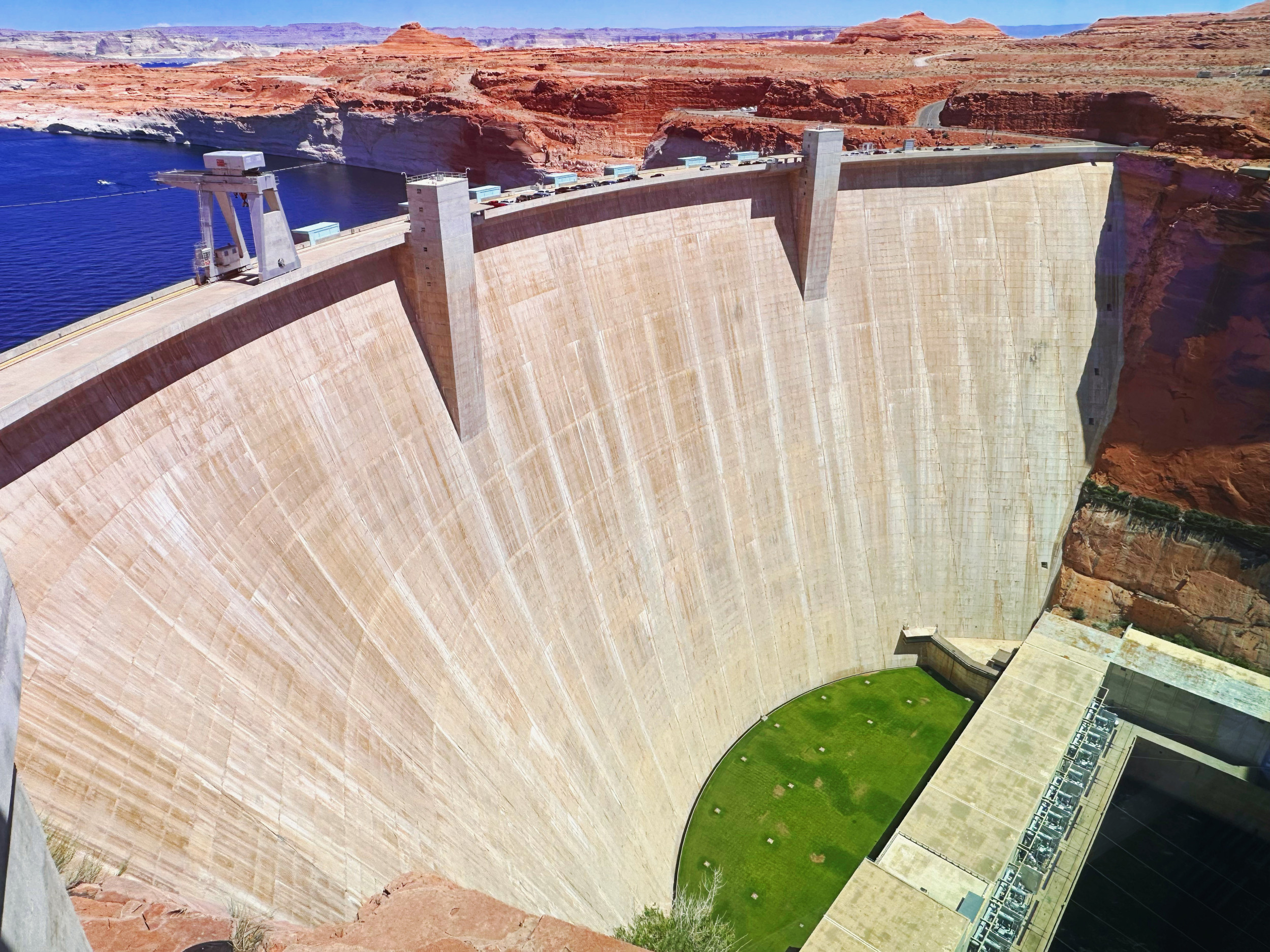
After years of drought and rising water demand in the American Southwest, Lake Powell, the nation’s second-largest reservoir, remains more than 100 feet below its full level, and experts say a full recovery is unlikely.
This has sparked calls for a drastic rethink of water management in the Colorado River Basin, with some advocating for the lake to be drained entirely and replaced by a national park.
The Glen Canyon Dam, which created Lake Powell in 1963, was designed to provide hydroelectric power and water supplies for the growing population in the arid region.
However, prolonged drought exacerbated by climate change has severely impacted the reservoir.
lmel9000/Getty
Lake Powell and its downstream counterpart, Lake Mead, both hit historic lows in 2022 and though there has been some recovery since then, the long-term outlook remains bleak.
In response, the Glen Canyon Institute (GCI), a nonprofit advocacy group, is pushing for the draining of Lake Powell and the establishment of a national park in its place.
Eric Balken, GCI’s executive director, argued that the area was originally proposed as a national park during the Roosevelt administration and that the return of native plants and wildlife as water levels have receded demonstrates its ecological significance.
“As the reservoir has come down, what has emerged is national park caliber stuff,” Balken told Newsweek, referring to the “ecological rebirth” that has sprung up on the now exposed shores. Balken described the area as “America’s lost national park.”
He said that much of the area’s current tourism is not entirely water-based, with figures backed up by GCI analysis, suggesting that visitors would still be drawn to the region if the Colorado River flowed freely through the landscape.
Indeed, back in 2021, then superintendent for the recreation area William Shott told The Lake Powell Chronicle that if the dam was removed entirely the area would have “more people coming here to raft than they have in the Grand Canyon. It’ll be a different place, but people will still enjoy it. It’s just change.”
The area is designated as a national recreation area, a classification that allows for water-based recreational activities around a reservoir. By contrast, national parks are large protected areas that prioritize the preservation of natural and historic resources while still offering recreation opportunities.
According to the latest National Park Service data, the Glen Canyon National Recreation Area attracted 5.2 million visitors in 2023, generating $540 million for the local economy and supporting 6,300 jobs.
Newsweek contacted the National Parks Service, which manages Glen Canyon National Recreation Area, for comment on the proposals via its website.
Balken argued that the creation of Lake Powell was an ecologically unsound decision, as it submerged a region that was once home to a rich diversity of plant and animal life, as well as ancient cultural sites.
The push to transform the area into a national park faces significant challenges, as it would require an act of Congress, according to the U.S. Department of the Interior.
Legally, draining Lake Powell could prove a challenge since the reservoir sits at the heart of a complex water-sharing agreement between states that rely on the Colorado River.
In terms of managing the region’s water supplies, the GCI advocates for a “Fill Mead First” policy, whereby the Glen Canyon Dam would be bypassed and water would flow freely until it reaches the Hoover Dam at Lake Mead.
“Essentially, Fill Mead First would be just a change in the accounting of the Colorado River,” Balken said. “You would count it as delivered water to Mead or you count it as kind of an intentionally created surplus in Lake Mead that we all agree was from the upper Basin.”
Do you have a tip on a science story that Newsweek should be covering? Do you have a question about Lake Powell? Let us know via science@newsweek.com.
